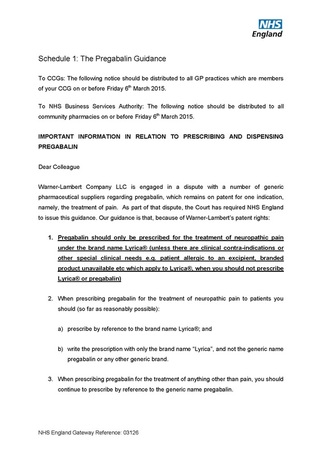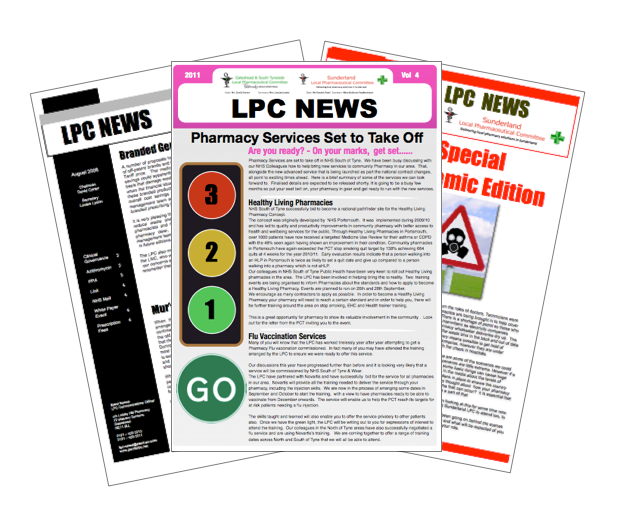
Mr Justice Arnold noted
" ... the best solution to the problem which arises in this case is to try to ensure that prescribing doctors prescribe pregabalin for the treatment of pain by reference to the brand name Lyrica rather than by reference to the generic name pregabalin. That will ensure that pharmacists only dispense Lyrica when presented with prescriptions for pregabalin which are (at least so far as the prescriber is concerned) for pain without requiring the pharmacist to know the indication for which pregabalin has been prescribed."
This guidance is contrary to the general prescription guidance which is always to prescribe generically unless there is very good reasons to do otherwise. Pfizer had apparently submitted evidence in this case that indicated local health authorities were refusing to accede to their request to prescribe pregabalin by brand name for the patented use, based on there being "no clinical reason to do so".
LPC News have obtained a copy of the central guidance and pharmacies are expected to receive it direct from NHS England. It does not require a pharmacist to establish the indication. However, if the indication is known to be pain, they must dispense Lyrica.
The document is attached below for your information.






 RSS Feed
RSS Feed
